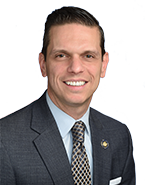New Bill adds Autism Spectrum Disorder to the List of Conditions for which Medical Marihuana can be used for Treatment in New York State
Assemblyman Angelo Santabarbara has introduced new legislation to amend New York’s public health law, adding autism spectrum disorder (ASD) to the list of conditions for which medical marihuana may be prescribed for treatment. The new bill is the latest addition to his Autism Action initiative that began in 2013.
Recent research has shown that the Cannabis plant extract, Cannibidiol (CBD), can be an effective therapy for children with certain cases of autism; improving behavior, anxiety levels and ability to communicate. While treatment is not for all cases, it can apply when certain symptoms are present including behavior that can affect physical health. Using medical marihuana to treat ASD been known to improve seizures, aggressive behavior, and communication skills. The use of medical marihuana to treat ASD was recently approved in Rhode Island. To date, 14 states allow for the use of medical marihuana to treat the symptoms of ASD.
“Treating autism with CBD is still something very new, but the benefits have already been proven for treating anxiety, hyperactivity, attention deficit and seizures, which are some of the common symptoms among many diagnosed with autism spectrum disorder,” said Assemblyman Santabarbara who’s teenage son, Michael, was born with autism. “In recent years, families across the country have spoken out about how medical marihuana has helped minimize the symptoms of autism and our neighboring state of Rhode Island recently became one of 14 states that make some allowance for medical marijuana in the treatment of autism,” Santabarbara said. “Passing this bill will be another great step forward for New York, making life-changing advances available to those living with an autism spectrum disorder that can lead to better outcomes.”
The latest report released by the U.S. Centers for Disease Control now shows that about 1 in 59 children in the United States are now being diagnosed with an autism spectrum disorder (ASD), up from 1 in 68 in 2012. The numbers have more than doubled since 2000.
